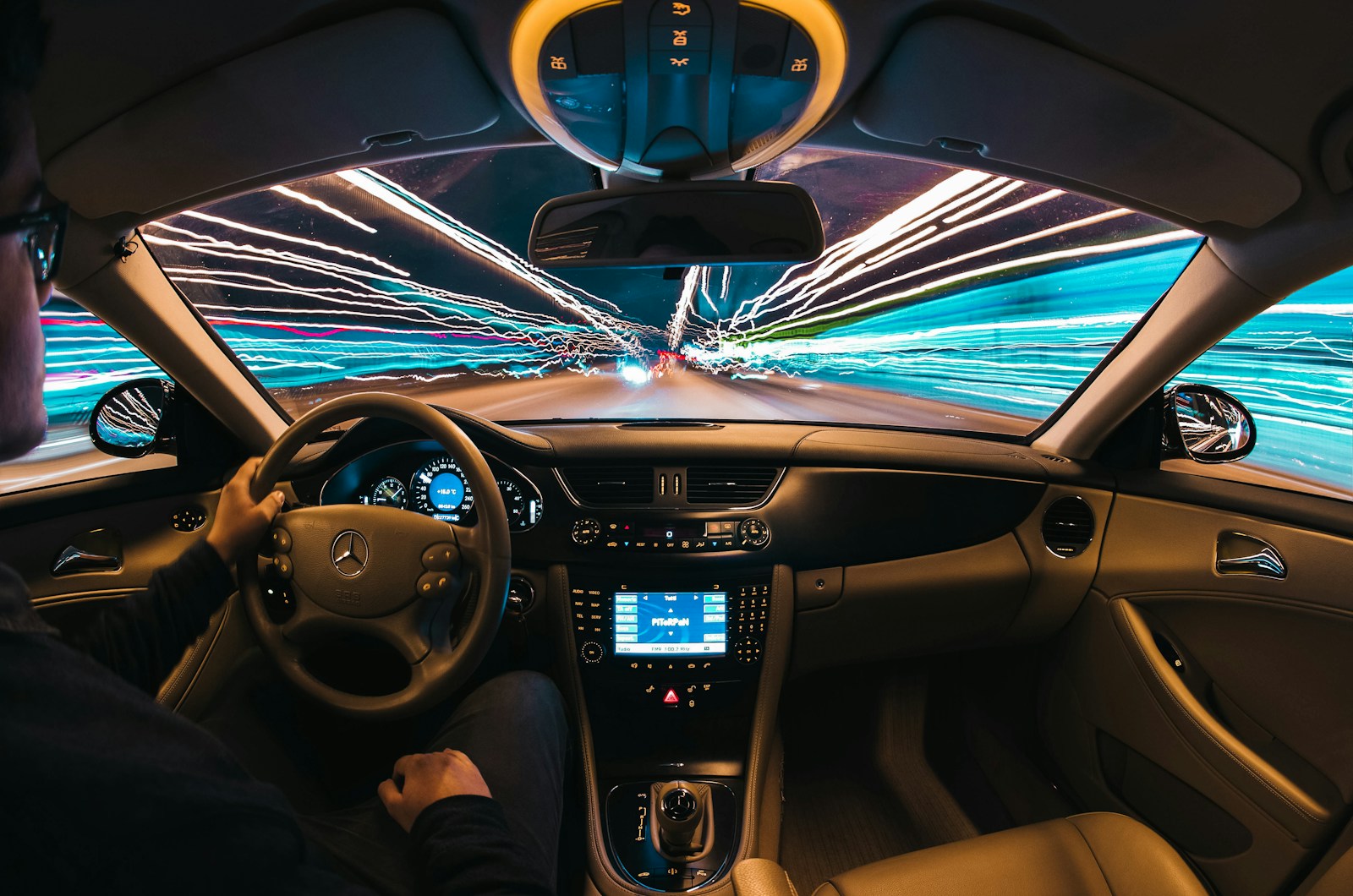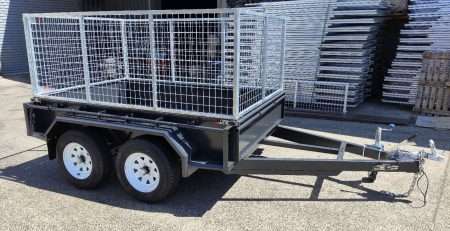
Best Car Air Purifiers for Vehicles: 2024 Reviews and Ratings
Air quality in vehicles has become a growing concern for many drivers and passengers. With increasing traffic pollution and the amount of time spent in cars, air purifiers for vehicles have gained popularity as a solution to improve in-car air quality. These devices help remove particulate matter, gasses, and other pollutants, creating a healthier environment for occupants.
This article will explore the top car air purifiers of 2024, examining their features and effectiveness. It will delve into how these purifiers work, the benefits of using them, and factors to consider when choosing the right one for your vehicle. Whether you’re looking for the best car air purifier with HEPA filter, a portable option, or a purifier for smoke, this guide aims to provide comprehensive information to help you make an informed decision.
Top Car Air Purifiers of 2024
In 2024, several car air purifiers stand out for their effectiveness in improving air quality inside vehicles. These devices are designed to remove particulate matter, gasses, and other pollutants, creating a healthier environment for drivers and passengers.
IQAir Atem
The IQAir Atem is widely regarded as one of the best car air purifiers available. It boasts a Clean Air Delivery Rate (CADR) of 66 m3/h, which surpasses many other car air purifiers on the market [1]. The Atem utilizes a HEPA H13 filter combined with gas-phase filtration media, ensuring high-quality air purification. While it doesn’t have an auto-on feature, it compensates with Bluetooth capability, allowing users to control it via their smartphones. The Atem is priced at USD 399.99, making it a premium option for those who prioritize air quality in their vehicles [2].
Pure Enrichment PureZone
The Pure Enrichment PureZone is a portable air purifier that’s well-suited for use in cars. It features a 2-stage filtration system that eliminates 99.97% of germs, including an Activated Carbon Pre-Filter for trapping odors and harmful gasses, and a True HEPA Filter for removing dust, dander, pet hair, pollen, mold spores, and smoke [3]. The PureZone is designed to clean 6ft² of air in 12 minutes, making it effective for personal spaces like car interiors. Its rechargeable lithium-ion battery lasts up to 12 hours, providing extended use during long drives .
Twinkle Birds Car Air Purifier
The Twinkle Birds Car Air Purifier is a plug-in ionic air purifier designed specifically for vehicles. It connects to a 12V car outlet and features a dual USB charger for added convenience. This purifier is effective at removing allergens such as pollen, dust, and pet dander, as well as eliminating odors from smoke, pets, and food . It generates a safe level of ozone to kill viruses and bacteria, helping to keep the vehicle air safe for families and children.
Basic Concepts Bamboo Charcoal Bags
For those seeking a natural and chemical-free option, Basic Concepts Bamboo Charcoal Bags offer an alternative approach to air purification in vehicles. These bags contain activated bamboo charcoal that absorbs odors, moisture, and pollutants from the air [5]. They can be placed in various locations within the car, such as under seats or in cup holders. The charcoal bags are reusable for up to two years and can be rejuvenated by placing them in sunlight for a few hours each month [6].
Image Source: AI Generated
How Car Air Purifiers Work
Car air purifiers are designed to improve the air quality inside vehicles by removing particulate matter, gasses, and other pollutants. These devices utilize various filtration systems and technologies to create a healthier environment for drivers and passengers.
Types of Filtration Systems
The most common filtration systems used in car air purifiers include HEPA filters, activated carbon filters, and ionizers. HEPA filters are highly effective at removing particulate matter, including dust, pollen, and other allergens. These filters can capture particles as small as 0.3 microns, making them ideal for trapping fine particulates that can be harmful to respiratory health [1].
Activated carbon filters are specifically designed to address gaseous pollutants and odors. These filters use a process called adsorption to trap volatile organic compounds (VOCs), smoke, and other chemical fumes that may enter the vehicle cabin [2]. Some advanced car air purifiers combine HEPA and activated carbon filters to provide comprehensive air purification.
Ionizers, another popular technology in car air purifiers, work by emitting negatively charged ions into the air. These ions attach to airborne particles, causing them to become heavier and fall out of the air. While ionizers can be effective at removing some pollutants, they may not be as efficient as HEPA filters in capturing smaller particles [3].
Key Features to Look For
When choosing a car air purifier, several key features should be considered. One important aspect is the Clean Air Delivery Rate (CADR), which indicates how quickly the device can purify the air in a given space. A higher CADR generally means more efficient air purification .
Another crucial feature is the power source. Many car air purifiers are designed to plug into a 12V car outlet, ensuring continuous operation while the vehicle is running. Some models also offer USB charging ports, allowing passengers to charge their devices while the purifier is in use .
Fan speed options are also worth considering, as they allow users to adjust the purification rate based on their needs. Multiple fan speeds can help balance noise levels with air cleaning efficiency [5].
Installation and Placement
Proper installation and placement of car air purifiers are essential for optimal performance. Most devices are designed to be compact and portable, fitting easily into cup holders, on dashboards, or attached to headrests [6].
When installing a car air purifier, it’s important to ensure that it doesn’t obstruct the driver’s view or interfere with any vehicle controls. Some models come with mounting accessories, such as straps or brackets, to secure the device in place [7].
For maximum effectiveness, car air purifiers should be placed in areas with good airflow. Common locations include the center console, near air vents, or in the back seat area. It’s also recommended to keep windows closed while the purifier is operating to maintain the cleaned air within the vehicle cabin [8].
By understanding how car air purifiers work and considering the various features and installation options available, drivers can make informed decisions to improve the air quality in their vehicles and create a healthier environment for themselves and their passengers.
Benefits of Using a Car Air Purifier
Improved Air Quality
Using an air purifier for vehicles can significantly enhance the air quality inside a car. According to the U.S. Environmental Protection Agency (EPA), indoor air pollution is often up to five times higher than outdoor levels [1]. This is particularly concerning for vehicles, where the concentration of pollutants can be even higher due to the confined space. Car air purifiers are designed to remove particulate matter, gasses, and other airborne contaminants, creating a healthier environment for drivers and passengers.
Odor Elimination
One of the primary benefits of using a car air purifier is its ability to eliminate unpleasant odors. Unlike air fresheners that merely mask smells, air purifiers actively work to remove the source of odors. This is especially beneficial for smokers or those who frequently transport pets. Many car air purifiers use activated carbon filters, which are particularly effective at absorbing odors and volatile organic compounds (VOCs) from the air.
Allergen Reduction
For individuals with allergies or respiratory issues, a car air purifier can make a significant difference in comfort during travel. High-efficiency particulate air (HEPA) filters, commonly used in car air purifiers, can remove at least 99.97% of dust, pollen, mold, bacteria, and other airborne particles with a size of 0.3 microns [2]. This level of filtration can greatly reduce allergens in the vehicle, providing relief for allergy sufferers and improving overall respiratory health.
Health Benefits
The health benefits of using a car air purifier extend beyond allergen reduction. By removing harmful pollutants from the air, these devices can help protect against various health issues associated with poor air quality. According to the World Health Organization (WHO), air pollution has been declared the primary environmental risk, and exposure to polluted air can lead to respiratory diseases, cardiovascular problems, and other health complications [3].
For long-haul drivers and truckers, maintaining good air quality inside the vehicle is crucial. Car air purifiers can help maintain low levels of carbon dioxide, which can prevent drowsiness and reduce reaction times, thus decreasing the risk of accidents. Additionally, some advanced car air purifiers have been shown to remove up to 99.97% of airborne viruses and bacteria, providing an extra layer of protection against infectious diseases.
By investing in a high-quality air purifier for vehicles, drivers and passengers can enjoy cleaner, fresher air during their journeys, potentially leading to improved health outcomes and a more comfortable travel experience.
Choosing the Right Car Air Purifier
When selecting an air purifier for vehicles, several factors should be considered to ensure optimal performance and compatibility with your car. By carefully evaluating these aspects, drivers can make an informed decision that best suits their needs and enhances the air quality inside their vehicles.
Vehicle Size Considerations
The size of your vehicle plays a crucial role in determining the appropriate air purifier. Larger vehicles, such as SUVs or RVs, may require more powerful units to effectively clean the air. For instance, the IQAir Atem Car is recommended for larger vehicles due to its superior performance in removing particulate matter [1]. Conversely, smaller cars may benefit from compact purifiers like the Pure Enrichment PureZone Mini Air, although it may take longer to remove pollutants in spacious interiors [1].
Power Source Options
Car air purifiers typically offer various power source options to accommodate different vehicle setups. The most common power sources include:
- 12V DC plugs (cigarette lighter sockets)
- USB ports
- Built-in rechargeable batteries
When choosing a purifier, ensure it is compatible with your car’s available power options. If your vehicle lacks a specific port, consider using an adapter or a portable battery pack for extended usage [1].
Maintenance Requirements
Regular maintenance is essential for optimal performance of car air purifiers. The frequency of filter replacements depends on the type of filter and driving conditions. Generally, air filters should be replaced every 12,000 to 15,000 miles [2]. However, drivers who frequently travel in dusty or polluted areas may need to replace filters more often.
When selecting a purifier, consider the ease of maintenance and the availability of replacement filters. Some models feature washable filters, while others require periodic replacements. Be aware of the costs and effort associated with filter maintenance to ensure long-term satisfaction with your chosen purifier [3].
Budget Factors
While budget is an important consideration, it’s crucial to balance cost with performance and features. High-end air purifiers often incorporate multiple filtration technologies, providing comprehensive protection against various pollutants . However, there are also effective budget-friendly options available.
When evaluating the cost, consider both the initial purchase price and long-term expenses, such as filter replacements and energy consumption. Some purifiers may have a higher upfront cost but offer lower maintenance expenses over time .
In conclusion, choosing the right car air purifier requires careful consideration of vehicle size, power source compatibility, maintenance requirements, and budget constraints. By evaluating these factors and selecting a purifier that aligns with your specific needs, you can significantly improve the air quality in your vehicle and create a healthier environment for your travels.
Conclusion
Car air purifiers have a significant impact on improving the quality of air inside vehicles, offering numerous benefits to drivers and passengers. These devices effectively remove pollutants, allergens, and odors, creating a healthier and more comfortable environment during travel. By considering factors such as vehicle size, power source options, maintenance requirements, and budget constraints, drivers can choose the right purifier to meet their specific needs.
As air quality continues to be a growing concern, investing in a high-quality car air purifier is becoming increasingly important to protect one’s health while on the road. Whether you’re looking to eliminate smoke, reduce allergens, or simply breathe cleaner air during your daily commute, there’s a car air purifier out there that can help. By making an informed decision and properly maintaining your chosen device, you can enjoy the benefits of cleaner, fresher air in your vehicle for years to come. ## FAQs
- Do car air purifiers actually function effectively?
Yes, car air purifiers are effective at performing their intended functions. However, the effectiveness can vary based on what you expect from an air purifier. Some models generate ozone which can eliminate strong odors, though these types are generally recommended for professional use only. - What are the top recommended air purifiers currently available?
The most recommended air purifiers include the Levoit Core 600S for overall performance, the Levoit Vital 200S for pet owners, the BlueAir Blue Pure 411i Max as a budget-friendly option, the Molekule Air Pro for large rooms, the Coway Airmega AP-1512HH Mighty for energy efficiency, and the Dyson Purifier Cool for cooling. - Is it possible to install an air purifier in a car?
Absolutely, you can install an air purifier in your car. These devices filter the air inside your vehicle, removing smoke, dust, pollutants, and other irritants, thereby improving the air you breathe while driving. - Which cars are equipped with the best air filtration systems?
Some of the top cars with excellent air filtration systems include the Tesla Model S, known for its cutting-edge technology, the Volvo XC90, the BMW 7 Series, the Mercedes-Benz S-Class, the Honda CR-V, and the Hyundai Kona Electric. These models are recognized for their superior ability to purify cabin air.
Author
I am Rahatul Ashiq Tamal. Another author of Muscle Trailers. Muscle Trailers is a well-known trailer brand in Sydney, Melbourne & Adelaide

How to Mount a Spare Tire on Your Trailer: A Simple Step-by-Step Guide
Trailer service centers receive over 1 million phone calls and 1.3 million emails each year about trailer maintenance problems....

How to Fix RV Roof Leaks: Simple Roof Leak Detection Guide for Beginners
Did you know DIY RV roof repairs can cost under $50? But undetected leaks could lead to substantially higher repair...

Starting a Food Truck Business in Australia: From Trailer Selection to Launch
The Australian mobile food market has evolved into a billion-dollar industry. This makes a food truck...
